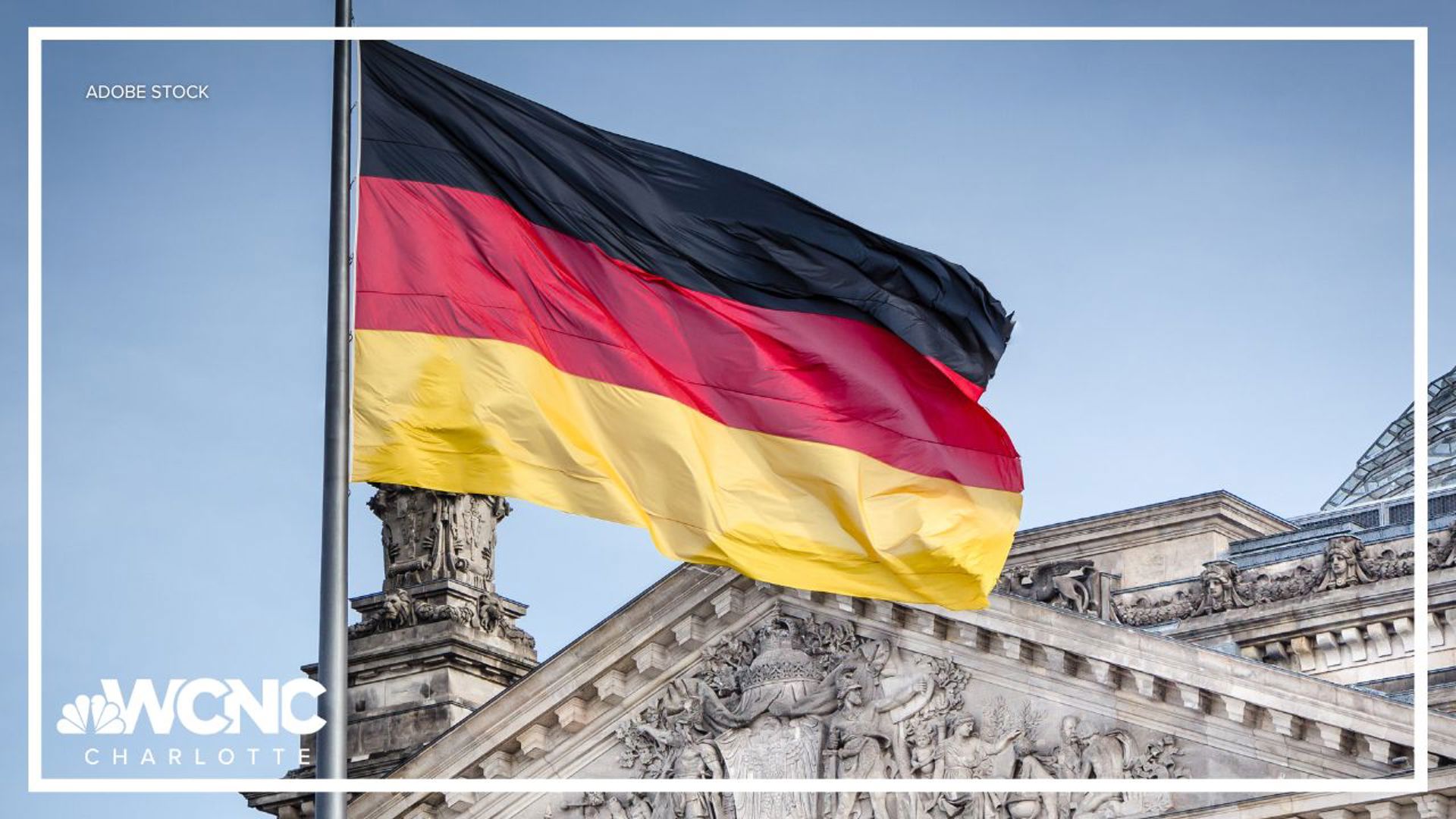CHARLOTTE, N.C. — According to Scott Denham, a professor of German studies at Davidson College, the first German immigrants came to North Carolina in the 16th century. However, little is known about them. Denham said the first big wave of German settlers to North Carolina came in the 18th century.
"So those Germans were here settling and doing business and, you know, making their lives in some ways as smaller landholders and merchants," Denham said.
Many of them were soon feeling at home with a tie to their new country, a German born princess.
"The namesake of your city and also of Mecklenburg County actually was Queen Charlotte," Juliane Rinas, the head of international relations at the State Chancellery in Mecklenburg-Vorpommern, said. "Queen Charlotte was born in 1744 in the small town of Mirow in Mecklenburg. And then later on she married the British King George III."
According to Denham, by the 19th century, the manufacturing and textile industry was in full swing.
"The Germans are making machines to spin the yard and weave the fabrics. Those are all German machines, what we would probably call machine tools, which is the stuff that makes the factory work," Denham said.
Fast forward to present day, Denham said there are about 30,000 Germans in Charlotte at any given time, making economic growth happen.
"They are making the things that make things -- right in textiles, in pharmaceuticals, chemistry broadly," Denham said.
The Charlotte region is home to 250 German companies, more than any other country.
“It’s a great business climate," German Honorary Consul Reinhard von Hennigs said. "Charlotte has great opportunities from a transportation or logistics view."
So why Charlotte?
Realistically, for the same reasons many of us move here and choose to stay.
“Close to the beach -- I mean three-and-a-half hours you’re in Charleston, two hours you’re in the mountains," Bernd Losskarn, a German working and living in Charlotte, said. "You’ve got it both right there at your fingertips."
Von Hennigs said transportation also makes it easy.
“We are the seventh largest airport in the world, so therefore it is relatively easy to get people and material in from a cargo point of view,” von Hennigs said.
The shared history between Mecklenburg County and Germany led to a unique partnership with Mecklenburg-Vorpommern, Germany in 1994.
The state of Mecklenburg-Vorpommern is in northeast Germany, and has a population of more than 1.6 million.
"Very beautiful with a lot of lakes in the northeast of Germany and also with the Long Arctic Sea coast," Rinas said. "So that is why we call it the best of Northern Germany. You can get great food here, great vacation, great landscape, so very good place to relax."
So what exactly does a partnership between the two mean?
It’s intended to strengthen the business, cultural, and educational bonds between the two regions.
"We're of course committed also to keep the memory alive, not only of Queen Charlotte, but also to fill it with life, and that is actually something that is happening, of course, by meeting, by bringing people together, by uniting people," Rinas said. "So for example, there have been teachers from Mecklenburg-Vorpommern who have taught at schools in Mecklenburg County."
Rinas said the two have also been working together since 2008 on a film festival titled The Mecklenburg Connection.
Mecklenburg County and Mecklenburg-Vorpommern celebrated the partnership's 30th anniversary this spring with a renewed agreement, hoping for more decades of success.

